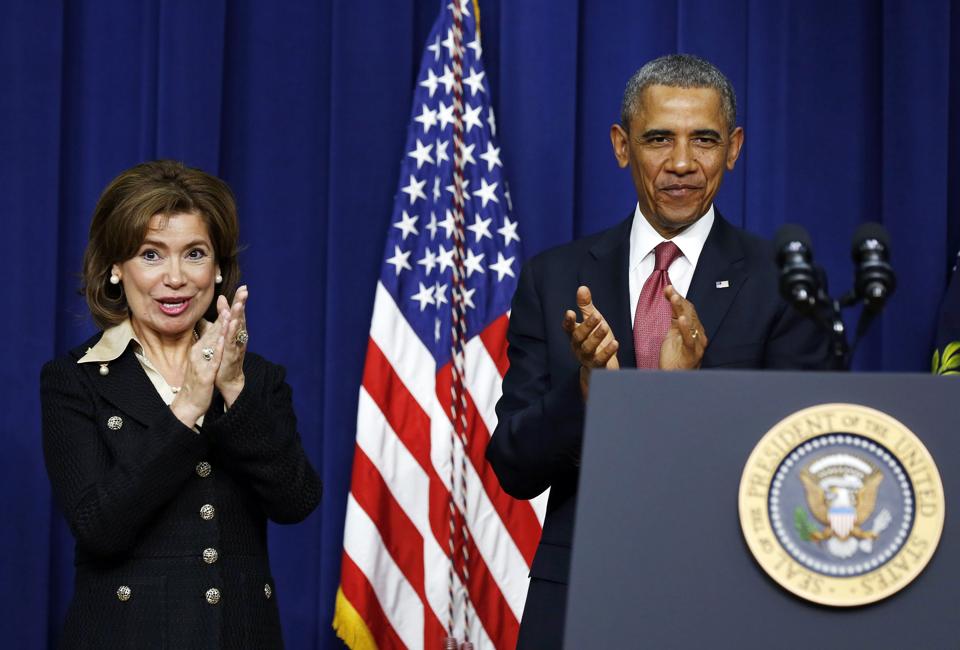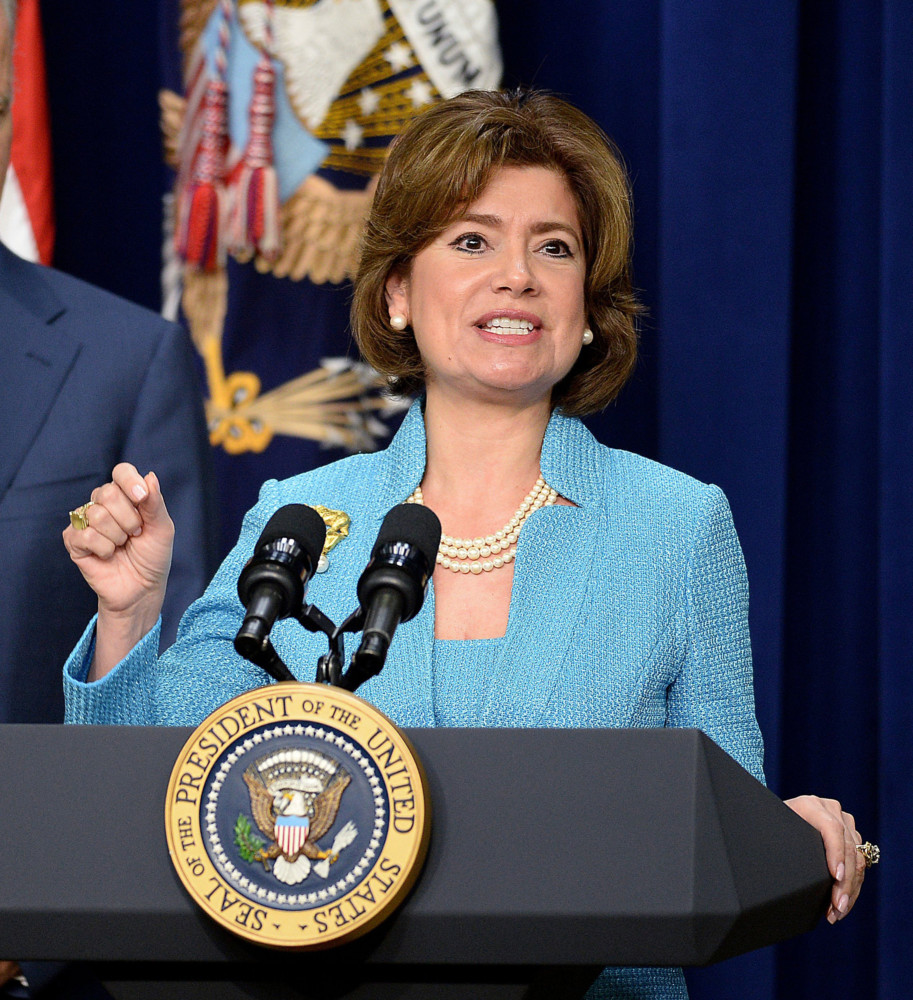By Ben Wolfgang
The Washington Times
President Obama on Wednesday named his choice to lead the Small Business Administration and established an electronics technology hub in North Carolina, but those and other steps won’t bridge the gaps that still exist between his administration and the broader business community.
Business leaders took their own shots at the President Wednesday morning, suggesting the White House is missing the mark by focusing most of its energy on federal investment and rising income inequality and should instead seek to heal a still-troubled economy through growth.
Speaking at a breakfast hosted by The Christian Science Monitor, Business Roundtable President John Engler had a tongue-in-cheek response when pressed on what Mr. Obama could do in the short term to jump-start economic growth.
“Start a business. We need more business start-ups. He could do that,” said Mr. Engler, a former three-term Michigan governor.
The president surely will not take Mr. Engler up on his advice, though the commander in chief did step forward Wednesday with his pick to head the SBA, an important liaison between the federal government and business owners across the nation.
Mr. Obama tapped Maria Contreras-Sweet, a banker and former California state official, to lead the agency.
Speaking at the White House, the president said Ms. Contreras-Sweet, a Mexican immigrant to the U.S., brings to the table all the qualifications needed for the job.
“I wanted somebody with a proven track record of helping small businesses succeed, somebody who had first-hand experience both in the private sector and the public sector who can work with us, and work with me, to expand growth and opportunity,” Mr. Obama said. “I wanted somebody who understands entrepreneurs. And it would be even better if that somebody had started a business of her own.”
Ms. Contreras-Sweet certainly fits that bill. She is board chairwoman of ProAmerica bank, a Los Angeles-based community bank she founded in 2006.
She previously co-founded a private-equity firm aimed at helping small businesses and also had served as California’s Business, Transportation and Housing Agency secretary from 1999 to 2003.
Her nomination was widely praised by groups such as the International Franchise Association and by powerful lawmakers such as Sen. Mary L. Landrieu, a Louisiana Democrat who chairs the Senate Committee on Small Business and Entrepreneurship.
Hours before formally nominating Ms. Contreras-Sweet, the president took other steps that he says will boost American research and innovation.
During a speech at North Carolina State University, Mr. Obama designated Raleigh as the home of the new “Next Generation Power Electronics Innovation Institute,” where government employees, leading universities and private companies will work together to research and ultimately produce a new, more effective and efficient form of semiconductor.
“The country that figures out how to do this and the companies that figure out how to do this best — they’re the ones that are going to attract the jobs that come with it,” the president said, speaking to a raucous group of students and supporters.
The move is part of what Mr. Obama has dubbed a “year of action,” in which he’ll take unilateral action wherever and whenever possible on the economy and on other issues.
But business leaders fear that some of the president’s actions may come in the form of new regulations, such as those that may restrict domestic energy production.
“We’re going to be very diligent at quantifying the impacts of regulations. What is the impact on growth and what is the impact on unemployment?” said Randall Stephenson, chairman of the Business Roundtable and the CEO of AT&T. Mr. Stephenson appeared alongside Mr. Engler at Wednesday’s breakfast.
While not specifically coming out against some of the president’s favored policies — such as a hike in the nation’s minimum wage from $7.25 to $10.10, part of a larger strategy to tackle income inequality — the two business leaders made clear that overall economic growth is much more important.
“What’s really critical here, what is really relevant, is to get the U.S. economy growing,” Mr. Stephenson said. “I can’t think of anything that would address this issue [of income inequality] quite like that.”
















































































































































































































































































































































































